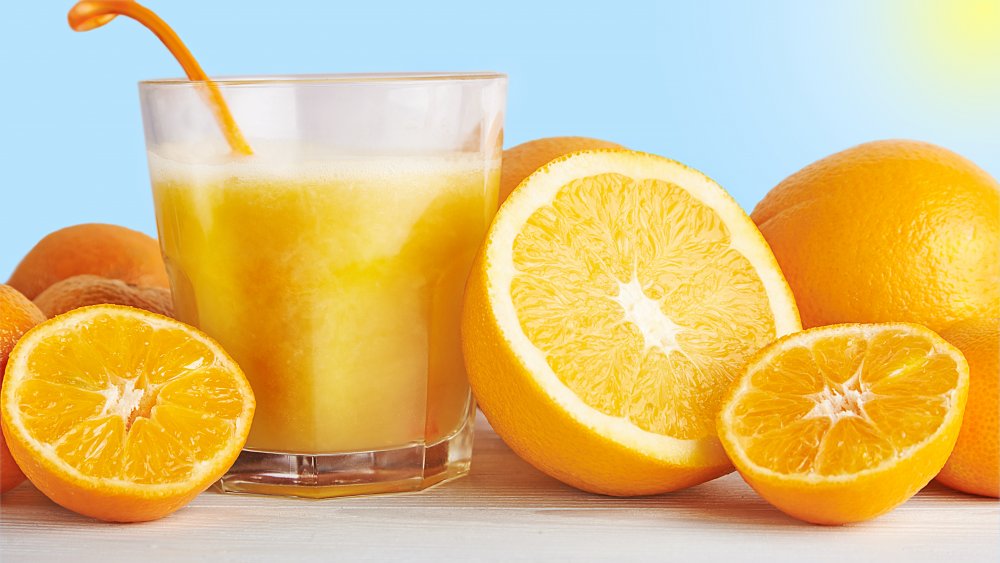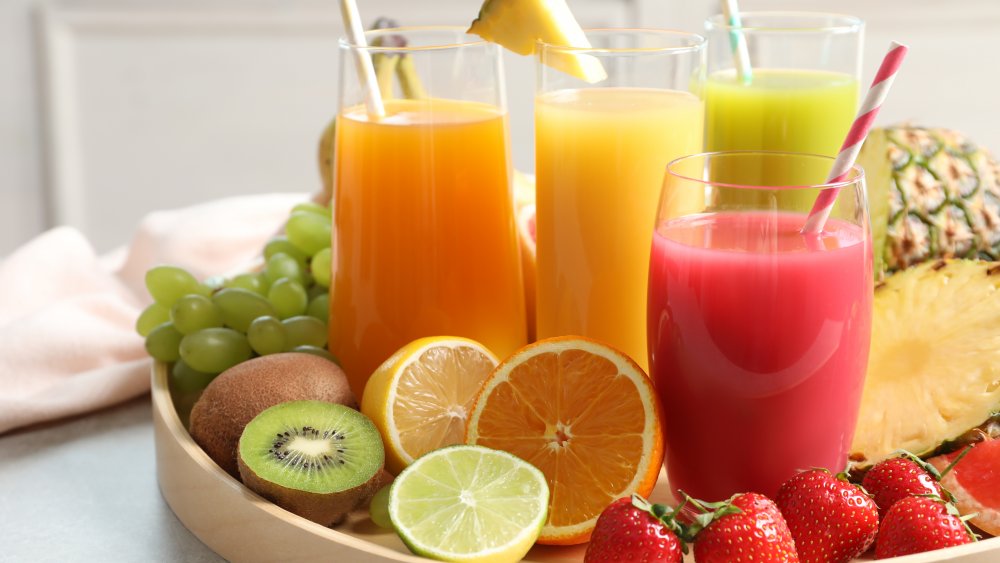Why You Should Think Twice About Drinking Juice From Concentrate
If you grew-up in the 1970's or 80's you're probably all too familiar with juice concentrates. In fact, your mom may have even put you in charge of grabbing a can from the freezer to make the morning O.J. Juice concentrates are generally found in the frozen food section at your grocery store, which means they can last longer than fresh juice, and come in small cardboard cylinders. The concentrate is made by removing the water from the fruits or vegetables. This dehydration process happens through extraction and evaporation, and leaves you with a dense syrup. This syrup is the concentrate and other ingredients can be added to it to sweeten it or brighten the color. You need to reconstitute the concentrate by mixing it with water (via Healthline).
If you are among those who are reaching for a glass of juice to quench your thirst in the morning, or after a work-out to replace lost electrolytes, you may want to think twice if the juice comes from a concentrate. Why? There are actually a few reasons, starting with how the process changes the nutritional benefits that you would get if you ate the fruit or vegetable in its original form. According to Times of India, producing a concentrate requires it to go through a heating process which can greatly impact the vitamin richness of the fruit.
Concentrates have added sugar and little fiber
While you can probably take a vitamin to replace vitamins your concentrate might be lacking, you can't do much about all the added sugars. Concentrates generally add sugar, sometimes in the form of high-fructose corn syrup. In fact, according Harvard Health Publishing, concentrated apple juice is 65 percent fructose. If that sounds like a lot, it's because it is. A simple glass of O.J. from concentrate contains 24 grams of sugar (via Eat this Much). Consider that for women, it's recommended you not exceed 25 grams of sugar per day; for men, that number is 37.5 grams (via Healthline). Studies have also shown that consuming sugar-rich drinks on a daily basis can lead to diabetes and heart disease.
Still, added sugar is not the only concern with concentrated juices. Whole fruits are rich in fiber, but unfortunately the same thing can't be said about their concentrated cousins. While few people like to talk about it, fiber is needed for healthy bowel movements, as well as helping reduce your risk for diabetes, heart disease, and cancer (via Mayo Clinic). So, skip the concentrate.

